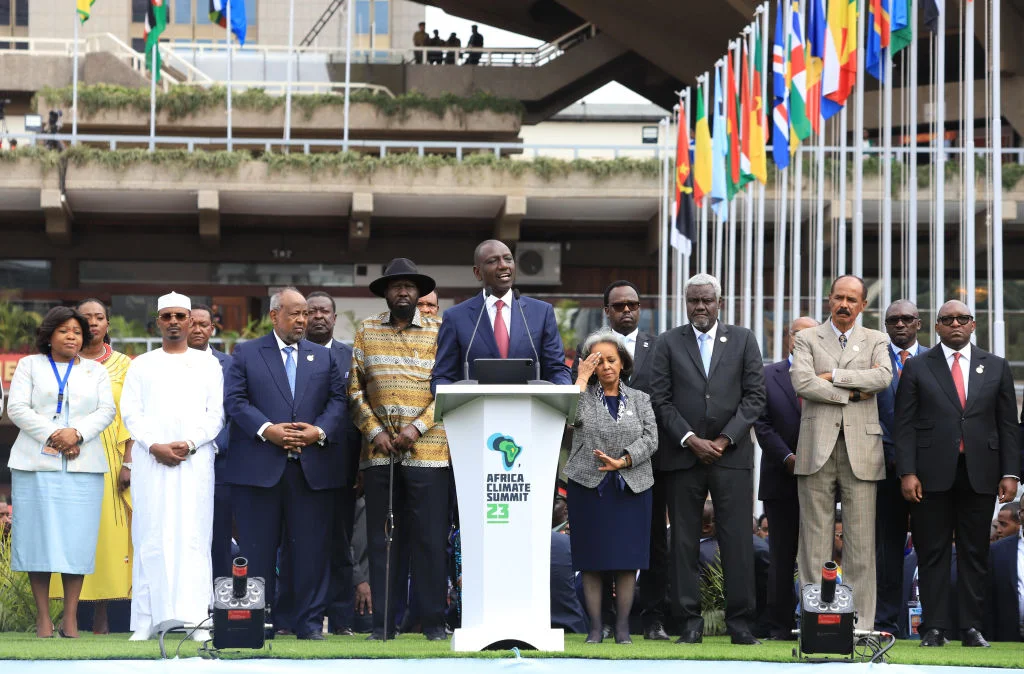Credit: Andrew Kasuku/Anadolu Agency via Getty Images.
As the inaugural Africa Climate Change Summit unfolds in Nairobi, a new narrative emerges—one of resilience, innovation, and untapped potential. Against the backdrop of mounting climate challenges, the continent stands poised to chart a new course—one that harnesses the transformative power of climate action to drive sustainable development and economic prosperity.
Africa, often portrayed as a victim of the climate crisis, is reclaiming its agency on the global stage. Despite contributing a mere 3.8% of historical carbon emissions, the continent bears the brunt of climate impacts, from devastating droughts in East Africa to encroaching sea levels threatening coastal communities in West Africa. Yet, amidst these challenges lies an opportunity for Africa to redefine its narrative and lead the charge towards a more resilient future.
At the heart of the summit’s discussions lies the imperative of climate finance—a crucial lifeline for developing countries grappling with the impacts of climate change. With pledges falling short of targets year after year, the need for concrete action and tangible support has never been greater. The establishment of a loss and damage fund, slated to be discussed at COP28, offers a glimmer of hope for countries seeking compensation for climate-related losses. However, the summit goes beyond mere demands for restitution, embracing a forward-thinking approach that views climate action as a catalyst for sustainable development.
Kenya’s President William Ruto, a vocal advocate for economic opportunity amidst environmental challenges, underscores the transformative potential of climate action. Embracing a paradigm shift, Ruto reframes the climate crisis as an opportunity for innovation and growth, rather than a burden to be borne solely by developing nations. His vision of a future where economic development and environmental stewardship go hand in hand resonates with a growing chorus of voices advocating for a holistic approach to climate resilience.
Indeed, Africa’s unique position presents a fertile ground for renewable energy development and innovation. With less developed fossil fuel infrastructure than other regions, African countries have the opportunity to leapfrog to cleaner, more sustainable energy sources. Kenya’s geothermal riches, showcased by its Rift Valley region, exemplify the continent’s vast renewable energy potential waiting to be harnessed.
As the summit unfolds, it is not just a convergence of heads of state and experts—it is a rallying cry for collective action, innovation, and solidarity in the face of climate adversity. Africa’s journey towards climate resilience is not without its challenges, but it is imbued with a sense of possibility and determination to build a future where economic prosperity and environmental sustainability are not mutually exclusive, but mutually reinforcing.
In conclusion, the Africa Climate Change Summit heralds a new era of climate leadership—a paradigm shift from victimhood to agency, from crisis to opportunity. As Africa navigates the complexities of the climate crisis, it does so with a renewed sense of purpose and a commitment to forging a path towards a more resilient and sustainable future for generations to come.


Leave a Reply